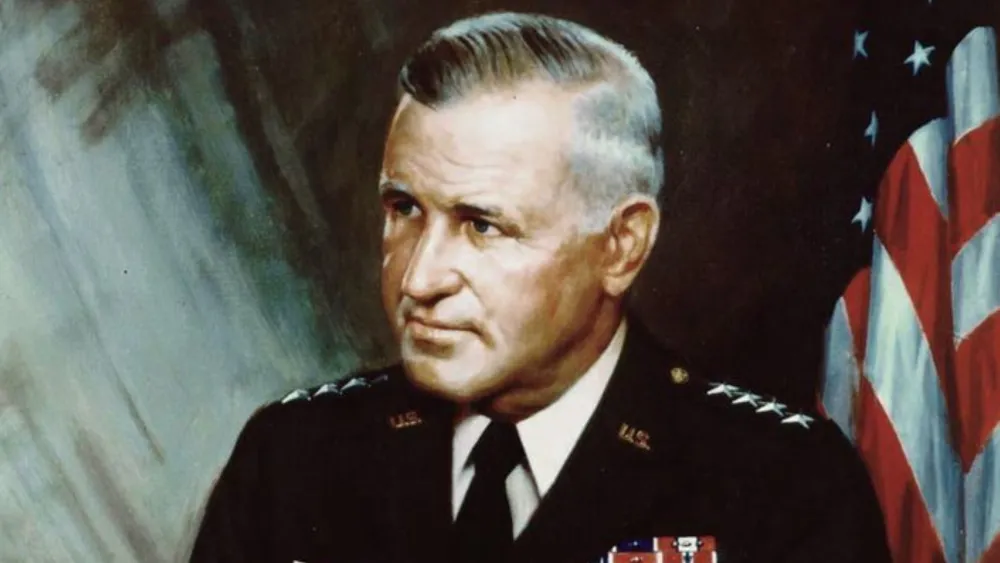Creighton W Abrams, Jr unquestionably stands out among certain figures as a model of leadership. He is a tactical genius and has an unshakable commitment to protecting the country in the annals of American military history. His legacy has left a lasting impression on the U.S. Army and the nation as a whole.
Moreover, he demonstrated remarkable leadership skills throughout his career and was instrumental in some of the most important wars of the 20th century.
The Influence of Family and Early Passion
Creighton entered the military due to the influence of his family’s heritage. He also had a fervor for service and an innate passion for military strategy. At West Point, he excelled academically and displayed remarkable leadership qualities. A relentless pursuit of knowledge marked his time at the academy, as did a tireless work ethic and an unwavering commitment to excellence.
These qualities would become cornerstones of his distinguished career. Upon graduating in 1936, Abrams initiated his military career with a deeply ingrained sense of purpose and duty. He approached his journey with a profound awareness of the responsibilities. Moreover, he prepared for the pivotal role in the nation’s defense that awaited him.
This early foundation at West Point, coupled with the strong sense of duty passed down through generations. Afterwards, it shaped Creighton Abrams into the legendary military leader he would ultimately become.
His formative years provided the bedrock upon which he would build a career marked by valor, innovation, and an unwavering commitment to the principles of leadership and service to his country.
World War II: A Proving Ground
During World War II, the global stage became a theater for testing military commanders’ leadership qualities and battlefield prowess, and Creighton Abrams emerged as a standout figure in this crucible of conflict.
His service as a tank commander in both the North African and European theaters was nothing short of exemplary. In the chaos of battle, Abrams displayed not only tactical acumen but also a remarkable degree of battlefield bravery, earning him the prestigious Silver Star, a recognition reserved for those who demonstrate exceptional valor in the face of danger.
One of the defining moments of Abrams’ wartime contributions was his instrumental role in developing and applying innovative tank tactics. These tactics were not only innovative but also instrumental in the success of Allied forces.
His deep understanding of armored warfare allowed him to devise strategies that maximized the effectiveness of tanks on the battlefield, changing the course of key engagements.
Korean War and Leadership Roles
In the post-World War II era, Creighton Abrams continued his remarkable ascent through the ranks of the U.S. Army, consistently demonstrating his exceptional leadership capabilities in various command positions. His career trajectory was a testament to his dedication, strategic acumen, and unyielding commitment to the defense of his nation.
The outbreak of the Korean War in 1950 presented Abrams with a pivotal opportunity to showcase his talents further. Furthermore, Abrams’ insight and impeccable management skills proved instrumental in navigating the multifaceted challenges posed by the Korean conflict.
His ability to adapt to evolving situations and devise effective solutions played a vital role in the success of U.S. and Allied forces.
Abrams’ reputation as a competent and innovative leader continued to flourish in the years that followed the Korean War.
His remarkable rise through the ranks of the Army was a testament to his leadership qualities, and he was consistently entrusted with key assignments that demanded both vision and excellence.
Creighton W Abrams Jr as a Chief of Staff During the Vietnam War
The Vietnam War was one of the most contentious conflicts in U.S. history, and Creighton Abrams’ tenure as the Chief of Staff of the U.S. Army from 1972 to 1974 was a critical period in the war’s history. He inherited a military deeply embroiled in the conflict and faced severe morale and strategic challenges.
Abrams implemented significant reforms and changes during his time as Chief of Staff, focusing on improving the Army’s readiness, modernization, and ability to adapt to future conflicts. His leadership was instrumental in transitioning the Army from the conscription-based force of the Vietnam era to the all-volunteer force that exists today.
One of Abrams’ most enduring legacies is the development of the M1 Abrams tank, which revolutionized armored warfare. This formidable vehicle remains a cornerstone of the U.S. military’s armored capabilities and is named in his honor.
Later Years and Legacy of Creighton W Abrams Jr
Despite retiring from active military service in 1974, Creighton Abrams’ commitment to the defense of the United States remained unwavering. He played an influential role in various defense-related capacities. Creighton leveraged his knowledge and experience to contribute to the nation’s security.
Tragically, the nation lost this remarkable leader when he succumbed to cancer on September 4, 1974, at 59. His passing marked the end of an era in the U.S. military, leaving a void that would be challenging to fill. However, his legacy is a source of inspiration and guidance for current and future generations of military leaders.
Creighton W. Abrams, Jr. is celebrated for his tactical brilliance and the remarkable leadership qualities that set him apart. His integrity and unwavering dedication to his country are enduring values. He set high standards for himself and those under his command. These values continue to resonate within the U.S. Army and the broader military community.
His name has become synonymous with excellence. Furthermore, his contributions have left an indelible mark on the U.S. military, shaping its doctrine, leadership principles, and ethos of service to the nation.

A Timeless Legacy of Leadership and Service
Creighton W Abrams Jr was a leader of extraordinary stature whose contributions to the United States Army and the nation continue to be felt decades after his passing. His leadership during World War II, the Korean War, and the Vietnam War, have solidified his place as one of America’s most distinguished military leaders.
As we reflect on the life and legacy of Creighton W. Abrams, Jr., we are reminded of the enduring power of leadership, dedication, and service to one’s country.




